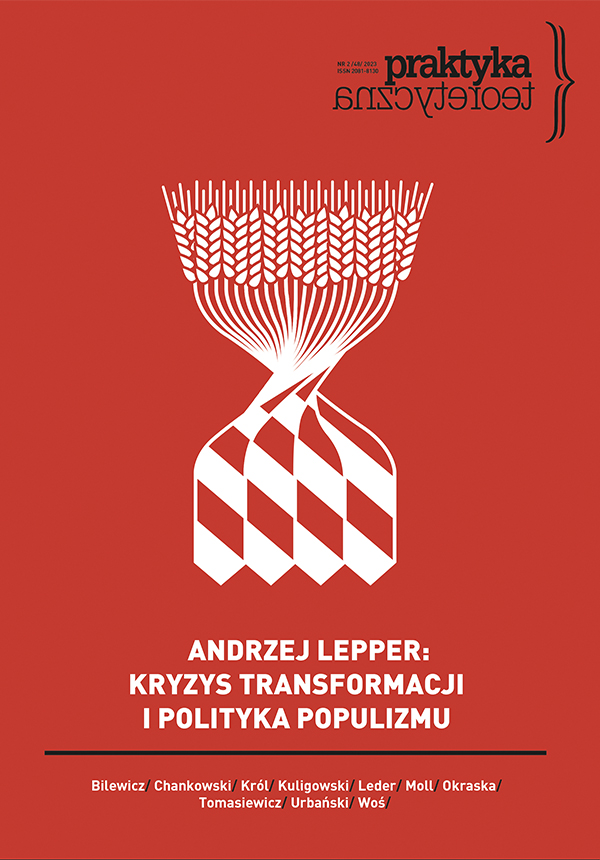

Articles

The aim of this paper is to identify the sources of Samoobrona’s ideology and its sociological determinants. Samoobrona was born in the early 90s as a grassroots
populist protest movement based mainly on farmers, but it also recruited other excluded groups like the urban unemployed and unskilled workers. The common enemies of this social coalition were foreign (especially German) capitalists, who were identified as the principal beneficiaries of privatization, therefore the ideology of agrarianism evolved quickly into a kind of radical nationalism combined with post-Communist sentiments. In the late 90s Samoobrona also won the support of the petty bourgeoisie and transformed into a parliamentary party. Samoobrona thus became a more moderate political force with a social democratic program. The last phase of the evolution was so-called “social liberalism” (in fact national liberalism) – the ideology of petty national bourgeoisie.